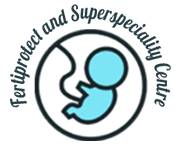In recent years, In Vitro Fertilization (IVF) has become a ray of hope for couples struggling with infertility. With advancements in reproductive medicine, many couples now have the chance to build their families through IVF. However, one of the most important factors that influence the outcome of IVF treatment is age. Understanding how age affects IVF success rates can help couples make informed decisions at the right time in their fertility journey.
If you are considering IVF Treatment in Viman Nagar, consulting an experienced IVF Specialist in Viman Nagar can provide you with personalized guidance based on your age and health condition. Let’s explore the connection between age and IVF success in detail.
The Role of Age in Female Fertility
Female fertility is closely linked to the quantity and quality of eggs. A woman is born with a fixed number of eggs, and this reserve gradually declines with age. As women age, not only does the number of eggs decrease, but the chances of chromosomal abnormalities also increase.
- 20s and early 30s: Women in this age group generally have the highest fertility potential. The quality of eggs is better, and IVF success rates are relatively high.
- Mid-30s to late 30s: Fertility begins to decline more noticeably after 35. Women may face difficulties conceiving naturally and might turn to assisted reproductive technologies like IVF.
- 40 and beyond: At this stage, both egg quantity and quality decline significantly. Though IVF is still possible, success rates are lower compared to younger age groups.
IVF Success Rates by Age
Several studies worldwide have consistently shown that IVF outcomes are closely related to the age of the woman. Here’s a general overview:
- Women under 35 have the highest success rates, with many achieving pregnancy within one or two IVF cycles.
- Between 35–37 years, success rates begin to dip, though many still conceive successfully.
- From 38–40 years, the chances reduce further, and multiple IVF attempts may be required.
- After 40, success rates are significantly lower, and options like donor eggs may be considered to improve outcomes.
These statistics highlight the importance of timing in fertility treatments. Seeking the advice of the Best Gynecologist in Viman Nagar ensures that you receive a detailed evaluation and guidance on when to pursue IVF for the best results.
Why Age Impacts IVF Outcomes
The decline in IVF success rates with age can be attributed to several biological factors:
- Egg Reserve and Quality: Younger women have more eggs with healthier chromosomes, which directly increases the chances of fertilization and implantation.
- Embryo Development: With age, the chances of embryos carrying genetic abnormalities rise, reducing the likelihood of a healthy pregnancy.
- Uterine Receptivity: While the uterus can often support pregnancy even in later years, the overall implantation rates are influenced by egg quality.
- Miscarriage Risk: Older women face a higher risk of miscarriage due to chromosomal abnormalities in embryos.
By working with an experienced IVF Specialist in Viman Nagar, couples can undergo fertility testing, ovarian reserve assessments, and embryo quality checks to get a clearer picture of their chances.
Male Age and IVF
Although female age plays a more significant role, male age also affects IVF outcomes. With advancing age, sperm quality, motility, and DNA integrity can decline. This can impact fertilization rates and embryo quality. Couples seeking IVF Treatment in Viman Nagar should ensure that both partners undergo fertility evaluations to maximize success chances.
Strategies to Improve IVF Success Rates with Age
While age is a natural factor, there are several medical strategies and lifestyle measures that can improve IVF outcomes:
- Early Fertility Planning: Women in their late 20s and early 30s should consider fertility testing if they face difficulties conceiving. Early intervention often leads to better outcomes.
- Preimplantation Genetic Testing (PGT): This helps in identifying chromosomally normal embryos, especially useful for women over 35.
- Healthy Lifestyle: Maintaining a balanced diet, regular exercise, and avoiding smoking or alcohol can improve reproductive health.
- Egg or Embryo Freezing: Women who wish to delay childbearing can preserve their eggs at a younger age for future IVF use.
- Donor Eggs: For women over 40 with diminished ovarian reserve, donor eggs can significantly improve success rates.
Guidance from the Best Gynecologist in Viman Nagar ensures that couples explore these options based on their unique situation.
Emotional and Psychological Considerations
The journey of IVF can be emotionally challenging, particularly for women in older age groups who may need multiple attempts. Stress, anxiety, and fear of failure can impact overall well-being. Couples are encouraged to seek counseling and emotional support throughout the process.
A compassionate IVF Specialist in Viman Nagar not only provides medical expertise but also emotional guidance, helping patients cope with the ups and downs of the journey.
Conclusion
Age plays a vital role in determining the success of IVF treatments. While younger women generally have higher chances of success, advances in reproductive technology have made it possible for women in their late 30s and 40s to achieve pregnancy as well. The key lies in timely consultation, personalized treatment planning, and a supportive healthcare team.
If you are considering IVF Treatment in Viman Nagar, make sure to consult Dr. Archana Salve for a thorough assessment. With the right approach, medical expertise, and emotional support, IVF can help you achieve your dream of parenthood, regardless of age.


 Select an element to maximize. Press ESC to cancel.
Select an element to maximize. Press ESC to cancel.